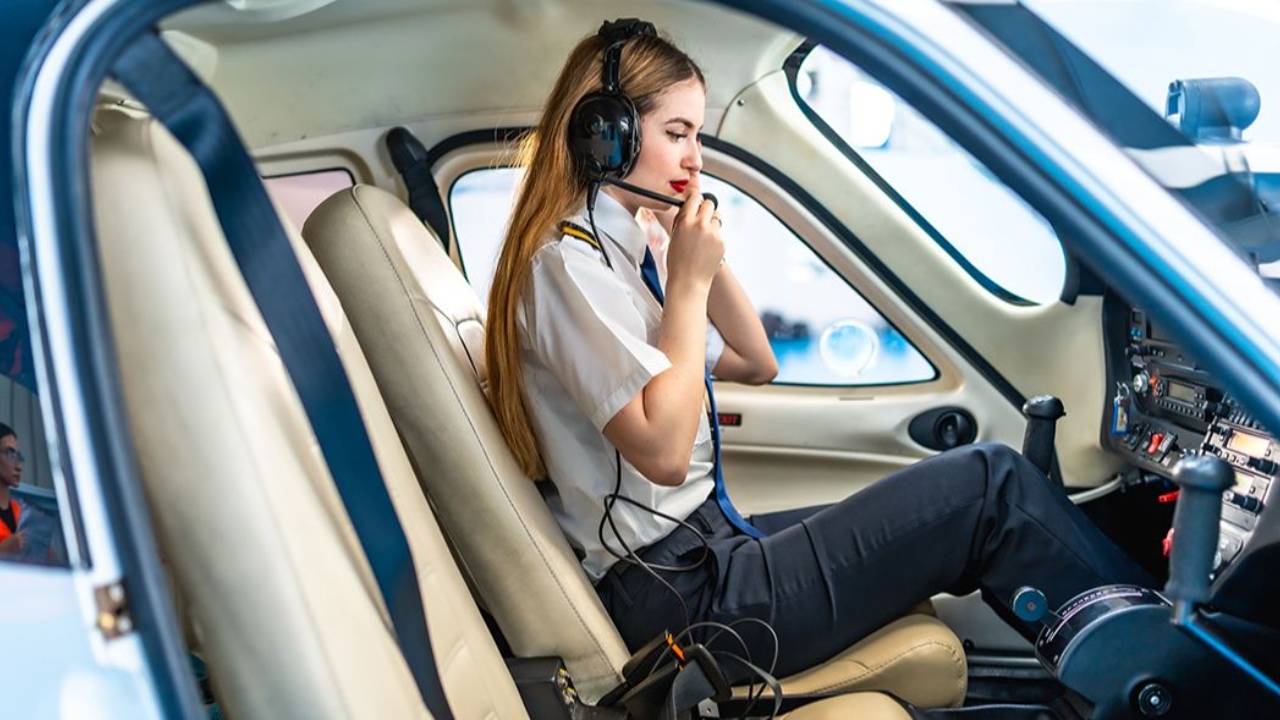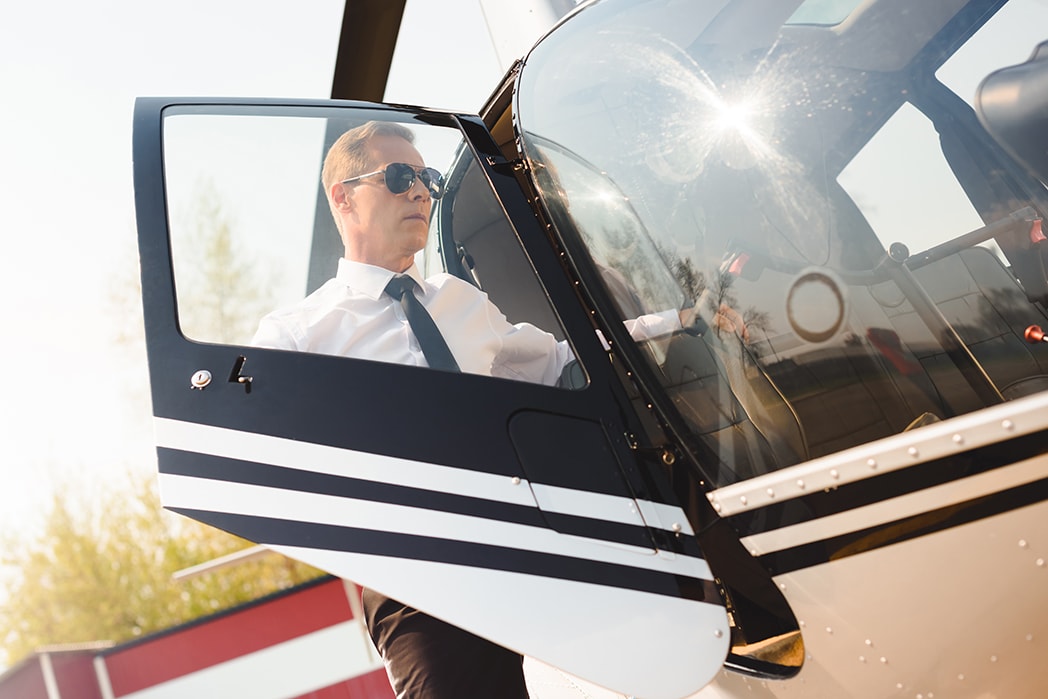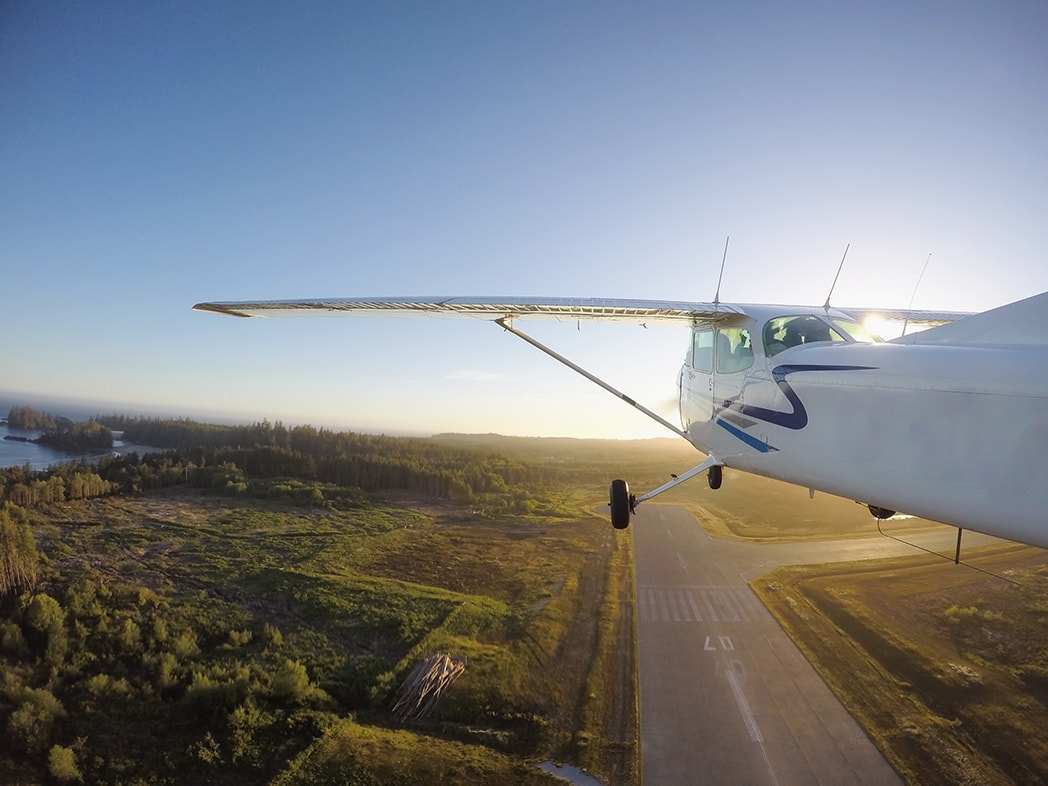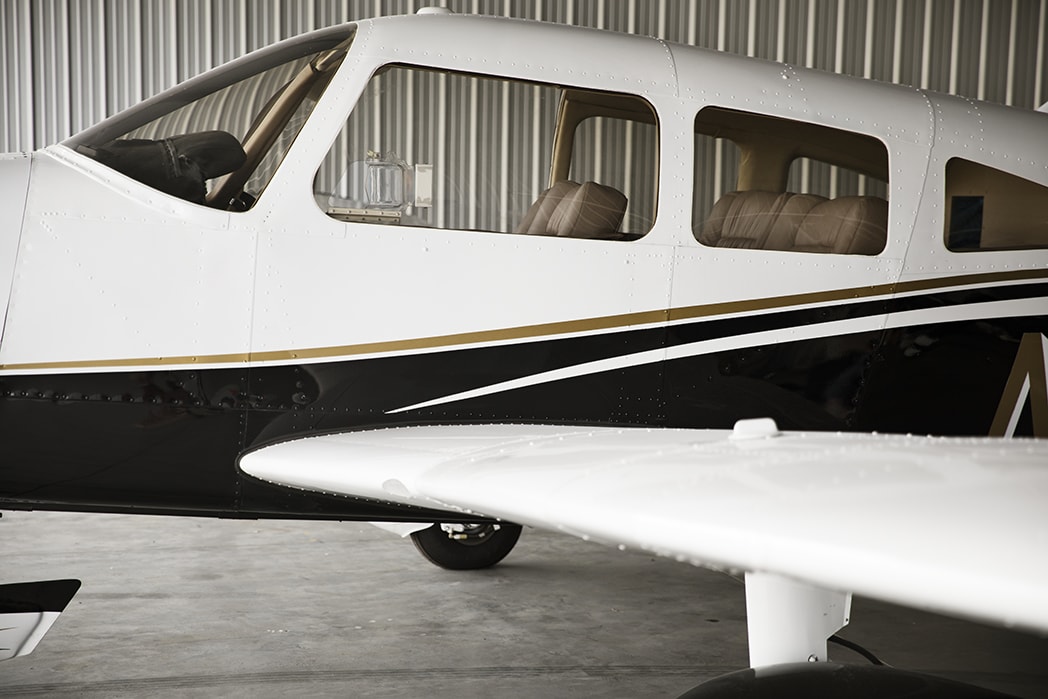Private Pilot Job Opportunities: Explore Your Career Paths
Jul 14, 2025
Interested in private pilot job opportunities? This article looks at the career paths available to private pilots, including flight instruction, charter and corporate aviation. How can you use your Private Pilot License for a career.
Key Takeaways
-
A Private Pilot License (PPL) allows you to fly for personal use and requires 40 hours of flight training and a third class medical.
-
Common PPL jobs are flight instructors, charter pilots and sightseeing tour pilots, networking is key to getting a job.
-
To increase your career prospects consider getting an instrument rating or a commercial pilot license for more job opportunities and higher pay.
Understanding the Private Pilot License (PPL)
A Private Pilot License (PPL) is the first step into the world of aviation. It allows you to fly certain types of aircraft for personal use and not for compensation.
In the US it’s also called the Private Pilot Certificate. This license is for those who want to fly for pleasure or personal business, so you can fly whenever you want without the pressures of commercial airline schedules.
To get a PPL you need to complete a minimum of 40 hours of flight training, which includes both solo and instructional hours. This total is referred to as flight time and is a critical benchmark in pilot training.
Many students begin with private pilot lessons at certified flight schools to fulfill these requirements.
This is a tough training to ensure private pilots have deep knowledge and strong skills. And you need to hold a third class medical certificate to ensure you meet the health standards.
Most flight schools also require a high school diploma or equivalent as a basic educational qualification before beginning pilot training.
The Federal Aviation Administration (FAA) regulates the rules and requirements for a PPL, including medical exams and flight training.
One of the best part of the PPL is you can fly at night if you meet the night training requirements. PPL holders can share operational costs with passengers but not charge for their services.
This is the difference between private pilots and commercial pilots who can earn a living flying.
But many pilots find joy in flying recreationally and the paid jobs available to PPL holders.
Common Jobs for Private Pilots

Private pilots can pursue a variety of career paths in aviation. From teaching aspiring pilots to providing on-demand air travel services, the possibilities are broad.
Common roles for private pilots include flight instructors, charter pilots, and sightseeing tour pilots. These positions allow pilots to utilize their skills and passion for flying while exploring different aspects of aviation.
Networking within the aviation community can significantly increase job opportunities for private pilots, joining family doors to exciting and fulfilling careers within the company.
Flight Instructor
Becoming a flight instructor is a popular choice among private pilots. Flight instructors teach aspiring pilots how to fly, covering everything from ground school to the basics of flight.
To become a flight instructor, PPL holders typically need to obtain a Certified Flight Instructor (CFI) rating in addition to their private pilot license.
This role not only allows pilots to share their passion and knowledge with others but also helps them accumulate valuable flight hours and experience.
Many instructors begin their careers by teaching at a flight school, where they gain hands-on teaching practice while building their hours.
PPL holders can teach for sport licenses, recreation licenses, or fellow private pilot licenses. To qualify to teach ground school, a PPL holder must be at least 18 years old and pass specific examinations.
This job offers a unique opportunity to contribute to the aviation community while honing one’s own skills as a pilot in command and as an officer.
Many pilots find that offering private flight instruction is a rewarding way to build experience and inspire the next generation of aviators.
Charter Pilot
Charter pilots fly private or business flights, small aircraft for clients. They need to have great customer service skills to look after their clients and make flying enjoyable.
Charter pilots do on demand private air travel, flexibility and convenience for the passengers.
In addition to flying small aircraft, charter pilots may also be first officer on larger aircraft, a varied and dynamic work environment for the team member involved in each flight.
This role requires airline pilot level of professionalism and to be able to adapt to different flying conditions and client requests.
If you enjoy meeting client needs and providing great service, being a charter pilot can be a great career.
Sightseeing Tour Pilot
Sightseeing tour pilots fly scenic tours to show off beautiful locations, giving passengers a new perspective on the world from the air. This role requires good navigation, excellent customer service and knowledge of the scenic destinations.
For pilots who love sharing the world from above, this is a great way to combine their love of flying with introducing others to stunning views.
Specialized Roles for PPL Holders
Private pilots can do more than just fly. There are specialized roles for PPL holders beyond flying jobs. These roles often require extra skills and certifications and open up more job opportunities and allow pilots to get into the different aspects of aviation.
From aerial photography and surveying to tow glider pilots and skydiving pilots, the opportunities are many and can lead to great careers.
Aerial Photography and Surveying
Private pilots can fly aerial photography or as survey pilots for real estate, environmental research and cartography. These roles require attention to detail and the ability to position the aircraft for the best shot.
Aerial photography is a way to combine the art of photography with the technical skill of flying, so many pilots love it.
Tow Glider Pilot
Tow glider pilots pull non powered aircraft into the air. This requires additional qualifications beyond a PPL so pilots are equipped to handle the demands of towing gliders.
For pilots interested in this area of aviation, becoming a tow glider pilot is a great experience.
Skydiving Pilot
Skydiving pilots fly jump planes for skydiving centers, working closely with skydiving centers to deliver safe and fun experiences for jumpers.
This role requires strong flying skills and the ability to handle the skydiving operation. Skydiving pilots can work at skydiving facilities and centers all over the country, it’s a dynamic and adventurous career.
Flying jump planes for skydiving centers requires pilots to be precise and reliable, safe for the jumpers and fun for them. This job is perfect for pilots who love adventure and work in a high energy environment.
Corporate and Business Aviation Opportunities

Corporate and business aviation has many opportunities for private pilots. These roles involve flying private jets for businesses and high profile clients, diverse flying and flexible schedules.
Job opportunities in this sector include corporate pilot and aircraft sales and demo positions, and many more aviation jobs.
With additional certifications pilots can increase their career prospects and job security and salary.
Corporate Pilot
Corporate pilots fly private jets for companies and executives, high level of service and professionalism.
Small companies or private aircraft owners hire PPL holders as corporate pilots, variety of flying experiences and work closely with business leaders.
Pilots at Trans-Exec Air Service, Inc. need to have ATP Certificate, lots of flight hours and FAA First Class Medical, high standards for this role.
In many cases, having a four year degree in aviation or a related field can enhance your qualifications for corporate aviation roles.
Salary range for corporate pilots at Trans-Exec Air Service, Inc. is $55.00 to $95.00 per hour, great career for qualified pilots.
Fly fancy aircraft, travel and have a great life with excellent benefits and opportunities for paid time during extended corporate trips or standby periods.
Aircraft Sales and Demonstrations
PPL holders can also look into aircraft sales and demonstrations. These roles involve flying the aircraft to showcase to potential buyers, need excellent flying skills and knowledge of the aircraft to pay attention to details.
Additional training or certifications may be required for some sales roles but flying and sales can be a great career for many pilots.
Advancing Your Career with Additional Certifications

PPL holders looking to advance their careers in aviation should consider getting extra certifications to help employees in their professional growth.
Getting an instrument rating or a commercial pilot license will open up more job opportunities and increase employability for eligible candidates in the future.
These certifications not only increases job prospects but also prepares pilots for more advanced roles and higher pay.
Instrument Rating
Getting an instrument rating allows pilots to access more job options, commercial and instructional. This rating allows PPL holders to teach ground courses and fly more complex flights, it’s a great addition to their qualifications.
With an instrument rating, pilots can fly in more weather conditions, enhance their skills and career opportunities, including getting a type rating.
Commercial Pilot License
Going commercial opens up so many more job opportunities and pay for pilots. Commercial pilots can fly for major and regional airlines and get a wide range of flying experiences and career paths.
This license allows you to get paid for your flying services which is a big step up from a private pilot license.
Pilots with a commercial license have access to more aircraft and flight operations than those with just a PPL.
The benefits of getting a commercial pilot license include more job prospects, higher pay and a professional flying career.
This is a big step for those who want to make a real impact in the aviation industry.
Advantages and Disadvantages of a Private Pilot License
A PPL has many advantages including being able to fly for fun and lower costs and time commitment compared to a commercial pilot license.
This is a cost effective way to get flying and into the aviation world. But a big disadvantage is you can’t get paid for your flying skills so limited financial benefits of having a PPL.
Understanding the pros and cons of a PPL is essential for aspiring pilots to make informed decisions about their careers.
While the PPL offers a great entry point into aviation, those looking to pursue a professional flying career may need to consider additional certifications and training to overcome the limitations of a private pilot license.
Ready to Start Your Aviation Career?

Getting your Private Pilot License (PPL) is a big milestone in a pilots life, opening up many aviation job opportunities and experiences.
A career in aviation can be a personal growth and travel experience, it’s a great path. Garg Aviation offers a complete training program for private pilots, theoretical knowledge and practical flight training to help you achieve your dreams.
Getting your PPL is just the start. It’s the foundation for a lifetime of adventure and growth in the aviation industry.
Whether you want to teach others to fly, fly executives or take stunning aerial photos, the options are endless. Now’s the time to take the first step to your flying career and start flying.
Summary
In short, getting a Private Pilot License (PPL) opens up a world of opportunities in aviation. From flight instructor and charter pilot to aerial photography and skydiving, the career paths are many and great.
Adding more certifications like an instrument rating or commercial pilot license will boost your job prospects and pay. As you start this journey, remember the sky is not the limit – it’s just the beginning.
Frequently Asked Questions
What are the primary requirements for obtaining a Private Pilot License (PPL)?
40 hours of flight training, solo and instructional, and a third class medical. Plus pass the FAA medical and meet the night flying requirements.
Can private pilots earn money from flying with a PPL?
Private pilots can’t make money flying with a PPL; they can only share costs with passengers. To get paid for flying services you need a Commercial Pilot License.
What additional certifications can enhance a private pilot's career?
Getting an instrument rating and a commercial pilot license can add so much to your private pilot career by allowing more complex flying and employment with airlines and commercial operators.
If you want to move up in the aviation world, get these ratings.
What are some common job roles for private pilots?
Private pilots often become flight instructors, charter pilots or sightseeing tour pilots. These jobs allow them to use their flying skills and experience many different types of aviation.
What are the advantages and disadvantages of holding a Private Pilot License (PPL)?
Holding a Private Pilot License (PPL) offers the advantages of lower costs, reduced time commitment, and the ability to fly for personal enjoyment.
However, a significant disadvantage is the restriction against earning income from flying, which limits potential financial benefits.
